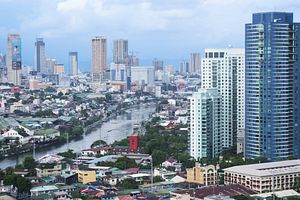The Korean embassy has issued a statement expressing alarm over the reported spike in crimes victimizing Korean tourists and businessmen residing in the Philippines.
It cited the killing of a Korean businessman last July and the abduction and killing of a Korean college student in Manila last March as examples of “brutal and senseless crimes that rattled” the Korean community in the Philippines.
The embassy said there are already nine cases of crime-related deaths of Korean citizens in the country this year. Last year, 12 Koreans were reportedly shot or stabbed to death in the country, but a local Korean newspaper reported that no suspects have been taken into custody.
This is not the first time the Korean government has raised the issue of rising crime in the Philippines. Last May, First Vice Foreign Minister Cho Tae-yong asked for the Philippine government’s cooperation in protecting the security of Koreans during a policy consultation held in Manila. This message was reiterated by Korean Ambassador Hyuk Lee last July. “The escalation in the number of killings is very disturbing… I just hope that the peace and order situation will improve, especially for the benefit of Koreans who visit the Philippines.”
There were 1.17 million Koreans who visited the Philippines last year. Korean tourists accounted for about 25 percent of all foreign visitors to the country. About 88,000 are already residing in various parts of the Philippines.
The embassy said it has already reached out to various national agencies such as the Department of the Interior and Local Government, the Philippine National Police, as well as the Office of the President “in the hopes that an intensified effort on the part of the Philippine government to curb criminality will lead to a safer environment for Korean nationals.”
It proposed various improvements in security measures, like preventing motor vehicles, particularly taxi cabs, from being used as a means to commit crimes, or protection from being targeted for kidnapping or “car-napping” by organized criminal syndicates.
In response, the police downplayed the concern that Koreans are being targeted by criminal syndicates and insisted that the country is still a safe destination for Koreans. Meanwhile, presidential spokesman Herminio B. Coloma Jr. assured the Korean community that the problem is already being addressed.
“We’re taking the matter seriously and this is given priority attention by the police and law enforcement agencies. Part of the government’s duty is to ensure the safety of all nationals residing in the country, and we want to assure the Korean embassy that this is being given highest priority by the Philippine government,” he said in a statement sent to a local newspaper.
But there are also suggestions that some of the cases involved crimes instigated by Korean gang members. This was raised by Professor Kim Dong-yeob from the Busan University of Foreign Studies: “It is highly possible that there are Koreans behind these crimes. Many Koreans flying to the Philippines have a reason to flee Korea. Many are gang members escaping law enforcement. What they end up doing is paying people to swindle money from Korean businessmen, students and tourists.”
Whatever the cause of these crimes, the embassy was right to point out that Korean investors might “avoid the Philippines and seek safer places for doing business.”
And it looks like the fallout is already happening. Central Bank data showed decreasing foreign direct investment from South Korea since last year. Korean investments reached only $440,000 as of May this year, compared to $1.78 million in the same five months last year, representing a 75 percent drop.
This should hopefully compel the police and other concerned agencies to act faster and decisively to reduce crime in the country. A safer Philippines would benefit both tourists and especially local citizens, who need to feel secure in their own country.

































